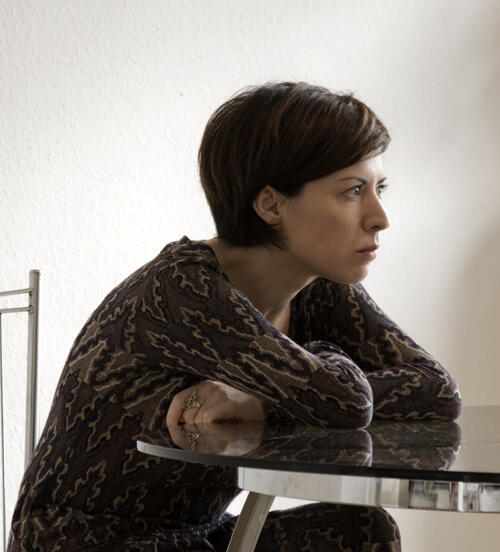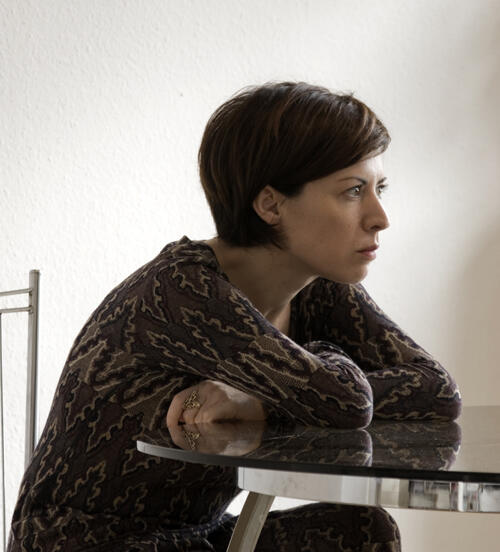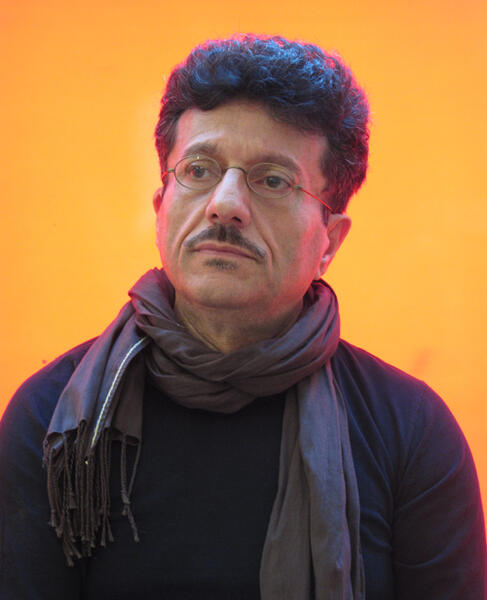Chus Martinez in conversation with Octavio Zaya
Chus Martínez, the Spanish curator who is dOCUMENTA (13) Head of Department, and Member of Core Agent Group and was recently appointed Chief Curator at El Museo del Barrio, answers a selection of questions posed to her by her colleague, curator Octavio Zaya, who has been appointed Curator of the Spanish Pavilion at the 55th Venice Biennial (2013).

Octavio Zaya: Considering, in retrospect, the monumental work carried out during these years for dOCUMENTA(13), as the head of a department and a member of the Core Agent Group, how would you assess your participation in this documenta and your contribution to it, and to what extent do you consider that d(13) reflects, expands the scope of, and differs from the previous editions, particularly since dX?
Chus Martínez: Defining or delimiting my role in dOCUMENTA(13) is a complex matter. The decision to give the title of "department head" to my position already alludes, in an almost humorous way, to the impossibility of defining the position of the person who has been closest to the artistic director. It is an almost symbiotic task: listening, looking, proposing, writing, editing... simple and complex at the same time; to think simultaneously with someone who is the director of documenta, and to try at all times to help give shape to her ideas and to the exhibition as a whole. The interesting thing about documenta, not only about this edition but about all that have followed after documenta 9, I would say, is that they simultaneously respond to and embark on the task of taking the premises of earlier editions even further. Explaining it in a very concise way, if dX proposed the verbality, the eloquence of contemporary art as the basis for a new conception of the public space and of political life, d11 expanded this premise to include the relationship between discourses that was established in the world following the dissolution of colonial empires. At the same time that d12 inherited this reflection, it inquired into the nature of the civil society to which this new public life seems to be devoted, a public life in which artistic production and institutions such as museums play a leading role. Are citizens judges or are they mere consumers upon whom an almost demagogic power has been vested when it comes to regulating the quality and the social importance of art produced today? D(13) inherits these questions and positions the artist and the way in which he or she investigates − not only the material aspects and the experience but also the nature of the different kinds of rational (verbal) and non-verbal knowledge—in the context of artistic production today.
OZ: And what would d(13)’s emphasis be?
CM: The emphasis of d(13) lies in the transformation that art has carried out within the human sciences, in the relationships that art is capable of establishing with forms of logic and ways of experiencing the world that go beyond philosophical conceptions and traditional aesthetics. In short, the project concerns itself with understanding how art is important today because it represents a proposal to imagine aesthetic life and political life in different ways, or in a manner that gives rise to a new vocabulary and a new way of living the urgent questions, of living life.
OZ: In my opinion, your reading is, on the one hand, generous, and on the other, rather forcedly linear. Briefly speaking, from my personal perspective as a member of the d11 team, I think there is an evident relationship between dX and d11 insofar as the former restated the validity of a political context for the interpretation of the artistic activity of the end of the 20th century, and d11 expressed a rupture in the hegemonic formation of the dominant culture, while at the same time it continued working on the transformation of that formation. D12, by contrast, struggled within the confines of the old notion of “aesthetic experience,” which rewarded immediacy, and sought to rehabilitate “beauty” and a return to the esoteric. I do not know how you conceive the relationship between d12 and d13, but perhaps you might explain to me what you understand when Carolyn [Christov-Bakargiev] states that d13 “lacks an overall concept,” or you can shed further light on a comment attributed to you: “d13 is the end of Pop.”
CM: Yes, d(13) is the end of Pop; it marks an expansion, partly thanks to the influence of thinkers such as Donna Haraway, towards logics that are the antithesis of the logic of industrial development and that take into account, as never before, issues related to gender and nature. An influence that transforms our notion of the “logic of capitalism” and that turns towards ways of being that are fundamental in order to understand life, experience, aesthetics, sexuality, and, consequently, economy. There is nothing esoteric here; only a new logic.




